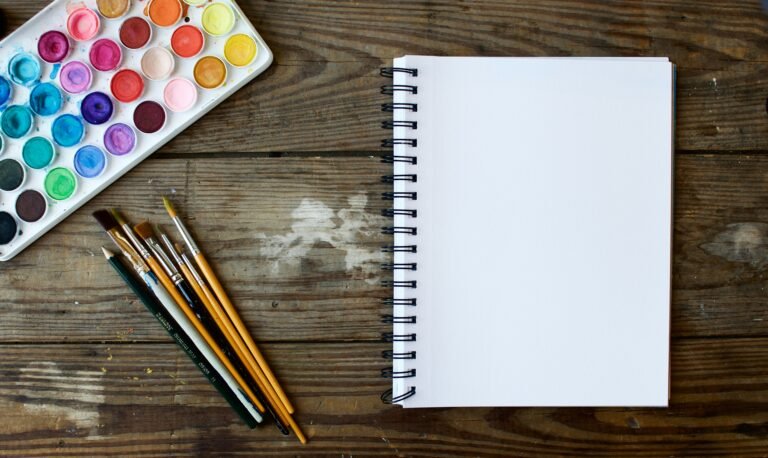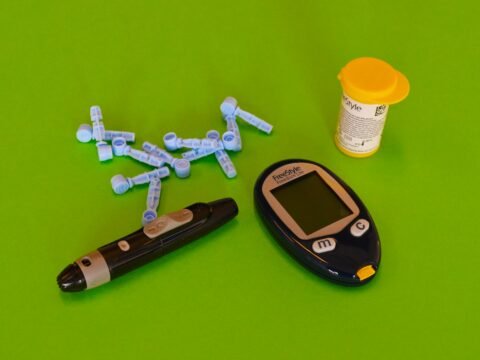Photo by Tim Arterbury on Unsplash
While some may argue that certain substances can enhance creativity, the reality is that addiction often stifles artistic abilities and impairs the creative process. The journey to recovery through addiction treatment not only helps individuals regain control over their lives but also allows them to reconnect with and nurture their creative talents.
There is a long-standing myth that drugs and alcohol can enhance creativity. Stories of famous artists, writers, and musicians who used substances as part of their creative process have perpetuated this belief. However, while substances might provide temporary bursts of inspiration or lower inhibitions, they often lead to detrimental effects in the long term.
Short-Term Illusions
In the short term, substances like alcohol, marijuana, and psychedelics can alter perception and reduce inhibitions, which might create a temporary sense of enhanced creativity. Users might feel more relaxed, open to new ideas, and uninhibited in their artistic expression. However, these effects are fleeting and often come with significant downsides.
Long-Term Consequences
Over time, the continued use of substances can lead to addiction, which significantly impairs cognitive function, emotional stability, and physical health. Addiction can disrupt the creative process, making it difficult for individuals to focus, think clearly, and sustain their creative efforts. Instead of fostering creativity, addiction often leads to a decline in artistic productivity and quality.
The Negative Impact of Addiction on Creativity
Addiction can have profound negative effects on creative expression and talents. The physical and psychological toll of substance abuse can hinder an individual’s ability to create and perform at their best.
Emotional Instability
Creativity often requires emotional stability and the ability to channel feelings into artistic expression. Addiction disrupts emotional regulation, leading to mood swings, anxiety, depression, and irritability. These emotional disturbances can interfere with an individual’s ability to create meaningful and authentic art. Instead of being a source of inspiration, emotions become obstacles that hinder creative output.
Physical Health Issues
The physical health consequences of addiction, such as fatigue, chronic pain, and illness, can also impact creativity. Physical well-being is essential for sustained creative efforts, and poor health can limit an individual’s ability to engage in creative activities. The physical toll of addiction can lead to decreased energy, motivation, and overall productivity.
Rediscovering Creativity Through Addiction Treatment
Addiction treatment offers a path to recovery that not only addresses substance use but also helps individuals reconnect with their creative talents. By overcoming addiction, individuals can reclaim their cognitive abilities, emotional stability, and physical health, allowing their creativity to flourish once again.
Detoxification and Stabilization
The first step in addiction treatment is detoxification, which involves clearing the substance from the body and managing withdrawal symptoms. This process helps stabilize physical and mental health, providing a foundation for recovery. As individuals begin to feel better physically and mentally, they are better equipped to engage in creative activities.
Supportive Environment
Addiction treatment provides a supportive environment where individuals can focus on their recovery and personal growth. Being surrounded by understanding professionals and peers who share similar experiences can foster a sense of community and encouragement. This supportive atmosphere can inspire individuals to pursue their creative interests and explore new artistic endeavors.
Nurturing Creativity in Recovery
Recovery from addiction is an ongoing process that requires continuous effort and support. Nurturing creativity in recovery involves incorporating artistic activities into daily life and using creativity as a source of fulfillment and motivation.
Recovery offers an opportunity to explore new creative mediums and techniques. Trying different forms of artistic expression, such as painting, writing, music, or dance, can reignite a passion for creativity and provide new ways to express emotions and ideas. Exploring new mediums can also be a therapeutic way to discover untapped talents and interests.
Setting creative goals can help individuals stay motivated and focused in their recovery journey. Whether it’s completing a painting, writing a poem, or performing music, having specific creative goals provides a sense of purpose and accomplishment. Achieving these goals reinforces self-esteem and confidence, which are crucial for maintaining sobriety.

Daniel J. Morgan is the founder of Invidiata Magazine, a premier publication showcasing luxury living, arts, and culture. With a passion for excellence, Daniel has established the magazine as a beacon of sophistication and refinement, captivating discerning audiences worldwide.





